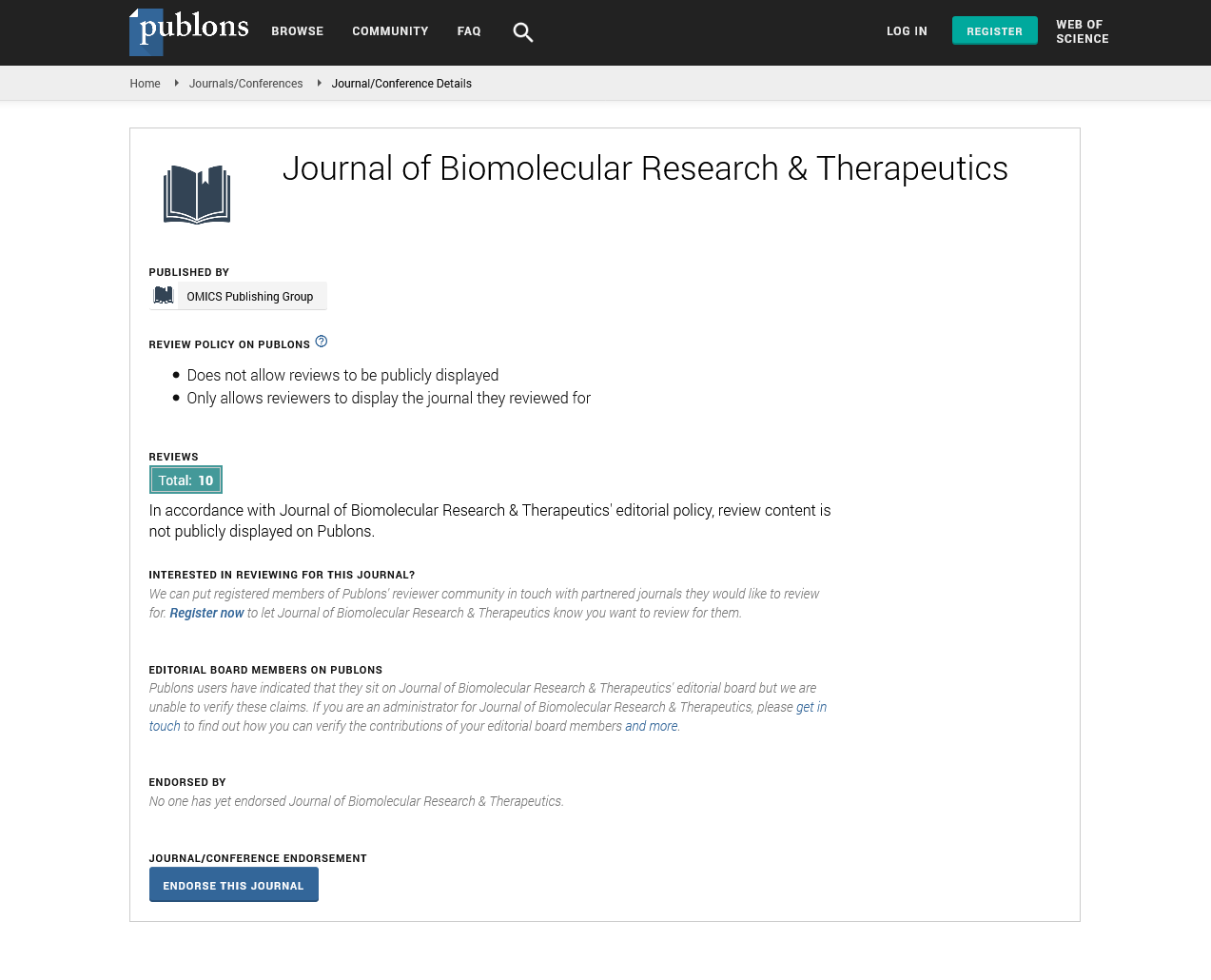Indexed In
- Open J Gate
- Genamics JournalSeek
- ResearchBible
- Electronic Journals Library
- RefSeek
- Hamdard University
- EBSCO A-Z
- OCLC- WorldCat
- SWB online catalog
- Virtual Library of Biology (vifabio)
- Publons
- Euro Pub
- Google Scholar
Useful Links
Share This Page
Journal Flyer

Open Access Journals
- Agri and Aquaculture
- Biochemistry
- Bioinformatics & Systems Biology
- Business & Management
- Chemistry
- Clinical Sciences
- Engineering
- Food & Nutrition
- General Science
- Genetics & Molecular Biology
- Immunology & Microbiology
- Medical Sciences
- Neuroscience & Psychology
- Nursing & Health Care
- Pharmaceutical Sciences
Perspective - (2023) Volume 12, Issue 3
The Role of Artificial Intelligence and its Advances in Cancer Medicine
Getachew Mesfin*Received: 03-Mar-2023, Manuscript No. BOM-23-20735; Editor assigned: 06-Mar-2023, Pre QC No. BOM-23-20735(PQ); Reviewed: 22-Mar-2023, QC No. BOM-23-20735; Revised: 29-Mar-2023, Manuscript No. BOM-23-20735(R); Published: 05-Apr-2023, DOI: 10.35248/2167-7956.23.12.279
Description
Machine learning and nanomaterial have modern medical objective of designing the best treatment for each cancer patient. Current collaboration improved nanoparticle design for precision cancer therapy. Diagnostic nanoparticles are utilized to create a physician disease profile which is subsequently used to improve treatment outcomes using a wide range of medical nanotechnologies. Yet, because of the substantial interference and inter-patient heterogeneity design and synthesis of medical and therapeutic platforms as well as analysis of their output is highly difficult. Artificial Intelligence (AI) techniques that integrate network analysis and classification techniques for increased treatment and diagnosis. Nanoparticles have aided the advancement of targeted therapy at all phases of treatment. Evolving collection methods such as solitary nanopore sequencing allow for faster and more accurate solitary detection while also allowing for increase the extent read length, preserving genetic context. Nanosensor-based diagnostic techniques enable biomarkers identification in behave properly values as well as simultaneous screening for numerous disease biomarkers in liquid samples (plasma, urine, saliva) and tissue cultures.
Nano medicine based cancer drugs have evolved from an inhabitant’s therapeutic strategy focusing largely at boosting efficacy and decreasing adverse effects to target device that report on medication activity within the patient's body. This results in phenotypic alterations and varying medication reactions among patients. Individual variety is especially visible in various cancers which are influenced by the aggregation of driver mutations resulting in based on inter and inter-patient inhomogeneity that complicate diagnosis and treatment. Personalized medicine seeks to personalize a treatment protocol to each individual by considering various epigenetic and gene-related variables.
Improvements in nanoparticle fabrication methods combined with a deeper understanding of human cancer facilitated the design phase of tailored therapy approaches that use both exogenous and endogenous cues to optimize medication delivery. These improvements also aided in the creation of theranostic Nano medicines which integrate a medication and an imaging reagent to assess therapy efficacy inside the person's blood. Nevertheless modern biosensor is on focused nanotechnology have had minimal success in cancer clinical translation. Artificial Intelligence (AI) is a computing field concerned with machines that do activities that need "human intelligence". Nanostructures offer a novel single approach for DNA and RNA sequence that is based on sensing changes in electrical current when a DNA strand moves across a lipid membrane.
In additional to its extended capabilities nanoparticle sequence has the advantage of not requiring nucleotides tagging or substantial sample preparation. Furthermore and cheap handheld devices extended the use of nanoparticle sequencing to remote sites and allowed for the quick identification of target antigens like the Influenza virus. The early nanoparticle techniques were based on specific proteins Nano pores such as hemolysin which allowed for the movement of single-stranded DNA with applied voltage and the monitoring of changes made as the plasmid DNA went through the nanoparticle contraction. However because many sequences are localized in the nanoparticle at any one time point all of which contribute to the observed ionic potential obtaining nucleotide sequence resolution with protein-based micro fabrication sequencing is difficult. Solid-state micropores could provide an alternate to nutrient porous materials. These nanostructures which are made of various materials such as SiO2, graphene, Boron Nitride, Solid-state Nan pores have been created by electron beam lithography and vapor deposition.
Citation: Mesfin G (2023) The Role of Artificial Intelligence and its Advances in Cancer Medicine. J Biol Res Ther. 12:279.
Copyright: © 2023 Mesfin G. This is an open access article distributed under the terms of the Creative Commons Attribution License, which permits unrestricted use, distribution, and reproduction in any medium, provided the original author and source are credited.

